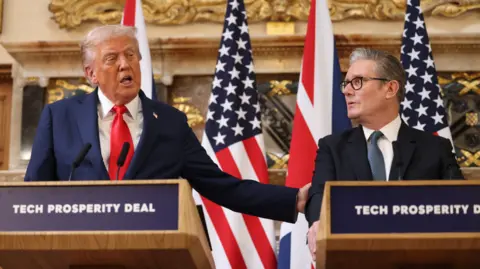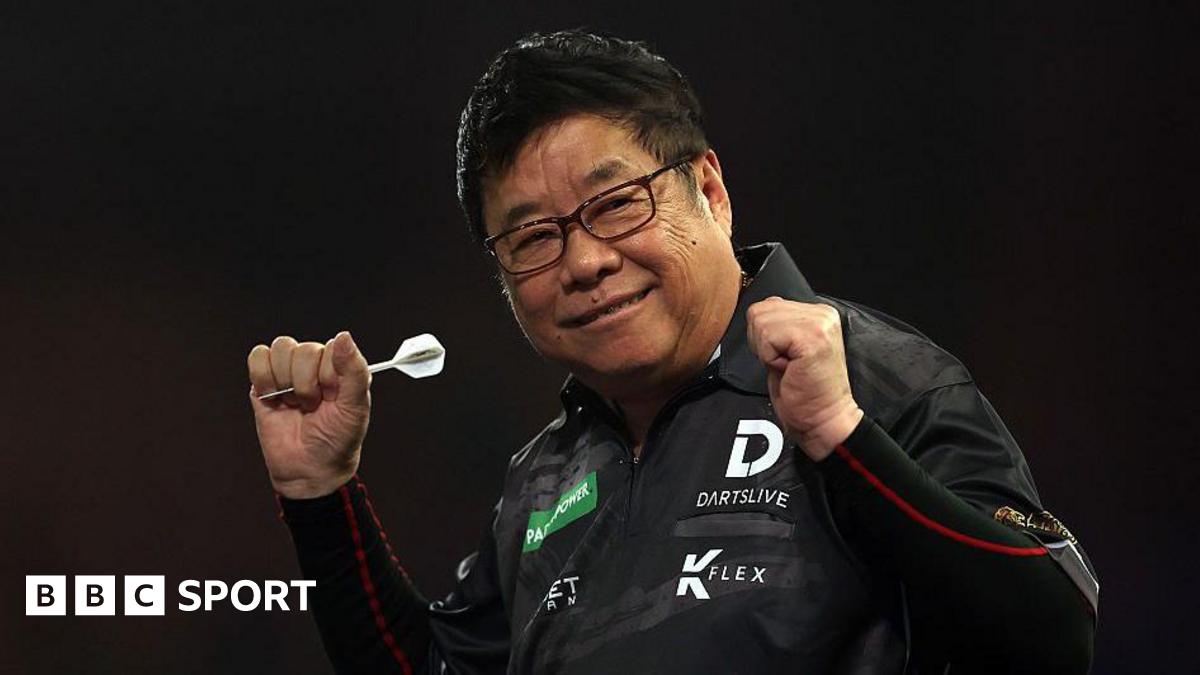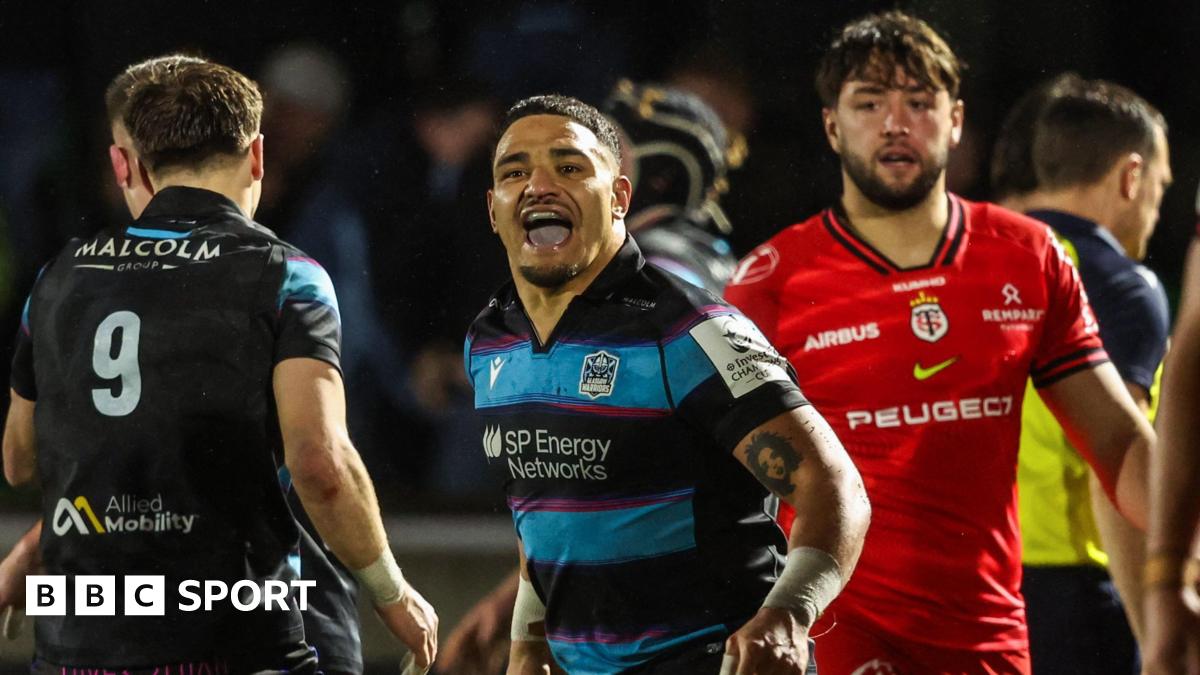
 EPA/Shutterstock
EPA/Shutterstock
Sir Keir Starmer and Donald Trump have delivered a joint press conference at the end of the US president's second state visit to the UK.
The press conference at the PM's country residence Chequers, lasting just under an hour, saw the leaders field questions on topics ranging from world affairs to domestic politics.
Here are the main points.
1. Trump skirted round Palestine 'disagreement'
The UK's imminent recognition of Palestinian statehood was a potential flashpoint, with Trump having previously said that the move could reward Hamas.
But asked directly about the UK's plans, Trump merely noted that he had a "disagreement" with Starmer on the issue, adding for good measure that it was one of only a "few disagreements" between the pair.
Starmer emphasised that the timing of the UK's decision, which is set to take place in the coming days, had "nothing to do" with Trump's visit, and should be seen in the context of an overall plan for a "plan for peace" in the Middle East.
And he added that Hamas, a designated terror group in the UK, could play "no part" in any future Palestinian state.
Those comments were warmly welcomed by Trump, with the US president reaching across his podium to give Starmer a pat on the back.
2. Using troops to stop illegal migration
Trump was also given a chance to comment on another tricky political issue for Starmer - his efforts to stop illegal arrivals into Britain amid record numbers of small boat crossings in the English Channel this year.
This time however the US president did not mince his words, suggesting Starmer should potentially involve the military, and warning that illegal migration "destroys countries from within".
Trump referred to his approach to securing the US border and said the pair had discussed the issue during their private meeting earlier.
He added: "I think your situation is very similar. You have people coming in, and I told the prime minister I would stop it, and it doesn't matter if you call out the military, it doesn't matter what means you use."
Starmer said the first flight under the migrant returns deal with France taking off earlier, calling it an "important step forward" on the small boats issue.
3. Tough talk on Ukraine
An area where the pair were seemingly united was in condemning Russia over its full-scale invasion of Ukraine, after Trump said earlier this week said he could impose tougher sanctions on the country if Nato allies meet certain conditions.
Starmer condemned recent Russian missile attacks that saw damage to the British Council building in Kyiv, and said the recent actions of Russian President Vladimir Putin were not those of someone who wants peace.
The US president said Putin had "really let me down", admitting he thought solving the Russia-Ukraine war would be one of the easier conflicts to deal with.
He added, however, that he did not regret holding the peace summit in Alaska with Putin a few months ago, and he felt an "obligation" to help find an end to the war due to the enormous loss of life in the conflict.
4. Free speech flashpoint avoided
Another potential point of tension was the subject of free speech, after Trump's vice-president JD Vance's scalding attack on European democracies, including the UK, over the issue earlier this year.
But asked whether he agreed with Vance and whether the issue remained an important area of disagreement with Starmer, Trump chose not to comment, instead moving to the next question.
Starmer promised the UK would protect free speech "jealously and fiercely," calling it one of the country's "founding values".
But he said free speech had to be balanced against the need for protections, such as protecting children from paedophiles and "those that peddle suicide" online.
5. Peter Mandelson - the elephant in the room?
The state visit has taken place one week after Sir Keir sacked former Labour minister Lord Mandelson as his ambassador to the US over his past friendship with the convicted sex offender Jeffrey Epstein.
That had the potential to be awkward for both the prime minister and the US president, who also had a friendship with the now-deceased Epstein before falling out with him in the early 2000s, prior to the late financier's conviction for soliciting prostitution from a minor.
Referring to Mandelson as the "elephant in the room", Sky News reporter Beth Rigby asked Trump if he had sympathy with the sacked Labour peer.
Despite having shaken hands with Lord Mandelson in the Oval Office earlier this year, Trump relied: "I don't know him, actually," before suggesting Sir Keir would be better placed to speak on the subject.
The prime minister repeated his previous assertion that he had sacked Lord Mandelson after new information came to light about his association with Epstein.


.png)
 2 months ago
10
2 months ago
10








 English (US) ·
English (US) ·